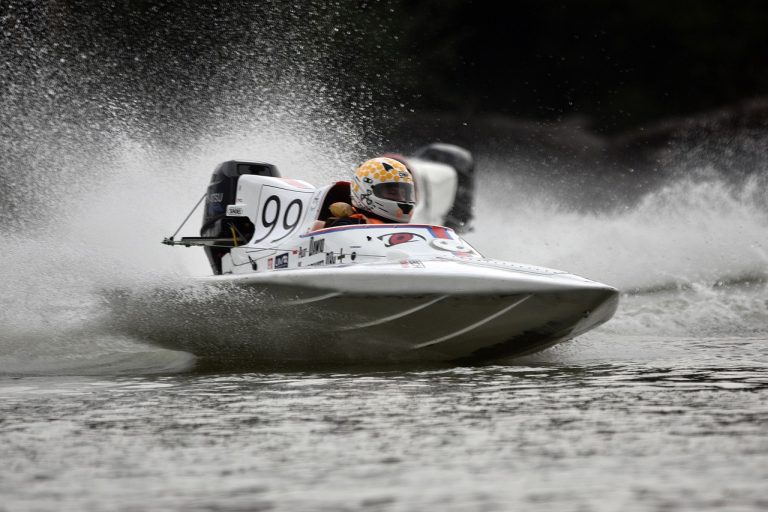
Sports have always been a vital part of human culture, evolving from simple games played in ancient times to the highly organized and commercialized events we see today. The journey of sports is not just about the games themselves; it reflects the changing values and priorities of society. Imagine ancient civilizations, where competitions were not merely for entertainment but were deeply intertwined with their rituals and beliefs. For instance, the Greeks celebrated athletic prowess through the Olympic Games, honoring their gods and showcasing their strength and skill.
Tracing back to early civilizations, we find that sports were often linked to survival and community bonding. From the fierce competitions of the Mesoamerican ballgame to the chariot races of ancient Rome, these activities were more than just games; they were a means of uniting people and demonstrating cultural identity. Each civilization had its unique set of rules and rituals, laying the groundwork for modern sports.
As we moved through history, the Industrial Revolution marked a significant turning point. With urbanization and increased leisure time, sports began to take on a new form. Organized competitions emerged, leading to the establishment of clubs and associations, which helped standardize rules and fostered a sense of community among players and fans alike. This transformation laid the groundwork for the professional sports we know today.
Sports reflect cultural values and play a crucial role in shaping societal norms. They bring together people from different backgrounds, fostering a sense of community and belonging. Whether it’s a local soccer match or an international championship, sports have the power to unite and inspire. They often serve as a platform for social change, highlighting issues such as inequality and discrimination, and encouraging dialogue and action.
In the modern era, technology has revolutionized the way we play, watch, and engage with sports. From high-tech equipment that enhances performance to live broadcasts that allow fans to experience the action from anywhere, the impact of technology is undeniable. Innovations like instant replay and analytics have changed the dynamics of competition, making sports more exciting and accessible than ever before.
Looking ahead, the future of sports is brimming with possibilities. With the rise of digital platforms and virtual reality, the way we engage with sports is set to evolve dramatically. Emerging trends suggest a growing emphasis on inclusivity and sustainability, reflecting the changing values of society. As we embrace these changes, one thing remains certain: sports will continue to be a fundamental part of our lives, connecting us through shared experiences and passions.
Historical Origins of Sports
When we think about sports, it’s easy to imagine modern-day athletes competing for glory, but the roots of sports run deep into the fabric of ancient civilizations. Sports have been around for thousands of years, evolving from simple games to the complex, organized competitions we see today. Early humans engaged in various forms of physical contests, often as a means to prepare for hunting, improve strength, or even settle disputes. For example, the ancient Greeks celebrated athletic excellence through the Olympic Games, which began in 776 BC. These games were not just about physical prowess; they were a celebration of culture and unity among the city-states.
In ancient Egypt, sports such as wrestling and archery were popular, often depicted in hieroglyphics and associated with religious rituals. Similarly, the Mayans played a game called Pok-a-Tok, which held significant spiritual importance and was more than just a sport; it was a way to honor their gods. These early sports were often intertwined with cultural practices, showing how they were more than just games—they were a reflection of societal values.
Interestingly, as we look at the historical timeline of sports, we can see a pattern emerge. The following table highlights key milestones in the evolution of sports:
| Year | Event | Significance |
|---|---|---|
| 776 BC | First Olympic Games | Established a tradition of athletic competition in honor of the gods. |
| 400 AD | Decline of the Olympics | Sports became less organized due to political changes. |
| 19th Century | Rise of Modern Sports | Standardization of rules and establishment of governing bodies. |
As we can see, the historical origins of sports are rich and varied, reflecting not only the physical abilities of individuals but also the cultural significance of competition. It’s fascinating to think about how these ancient practices have laid the groundwork for the diverse range of sports we enjoy today!
Transformation Through the Ages
The journey of sports is nothing short of fascinating, evolving dramatically from ancient times to our modern world. In the early days, sports were often tied to survival and community bonding. Picture this: ancient civilizations engaging in ritualistic competitions that not only tested physical prowess but also reinforced social hierarchies and cultural values. As societies progressed, so did the nature of their games.
Fast forward to the Middle Ages, where sports began to take on a more organized form. The emergence of tournaments and jousting events captured the imagination of many, showcasing not just skill but also a sense of chivalry. The Industrial Revolution brought about a significant shift, as urbanization led to the creation of structured leagues and formal competitions. This era marked the birth of modern sports as we know them today, with the establishment of rules and regulations that governed play.
Moreover, the 20th century introduced a new level of professionalism in sports. Athletes became icons, drawing massive crowds and generating substantial revenue. This transformation was fueled by various factors, including:
- The rise of mass media, allowing fans to engage with their favorite teams and players like never before.
- Increased accessibility to sports facilities, enabling more people to participate in and enjoy sports.
- The globalization of sports, where international competitions like the Olympics fostered a sense of unity and rivalry among nations.
Today, we find ourselves in an era where technology plays a pivotal role in sports. From advanced training equipment to data analytics, the way we play and experience sports has changed dramatically. As we look to the future, one thing is clear: the transformation of sports is a testament to our ever-evolving society, reflecting our values, aspirations, and the relentless pursuit of excellence.
Cultural Significance of Sports
The cultural significance of sports transcends mere entertainment; it acts as a reflection of societal values and a catalyst for community engagement. Think about it: when we gather around a screen to watch a game or head to a stadium, we are not just spectators; we are part of a larger narrative that binds us together. Sports have the unique power to unite people from diverse backgrounds, creating a shared experience that fosters community spirit and camaraderie. Whether it’s the excitement of a local football match or the grandeur of the Olympics, the thrill of competition resonates deeply within us.
Throughout history, sports have served as a platform for social change. From the civil rights movements to gender equality, athletes have used their visibility to address pressing social issues. For instance, iconic figures like Muhammad Ali and Billie Jean King have leveraged their influence to challenge societal norms and advocate for justice. This demonstrates that sports are not just about physical prowess; they are also about standing up for what is right and using one’s platform to inspire change.
Moreover, sports often reflect cultural narratives and traditions. Different regions have their unique games that encapsulate their heritage. Take, for example, the traditional Japanese sport of Sumo, which is steeped in rituals and history, or the indigenous games of various cultures that celebrate their unique identities. These sports not only entertain but also preserve cultural legacies, reminding us of our roots.
In conclusion, the cultural significance of sports is profound. They are a mirror of our society, a means of social cohesion, and a vehicle for change. As we continue to engage with sports in various forms, we must recognize their potential to shape our world and bring us closer together.
Technological Advancements in Sports
In the world of sports, technology has become a game changer, transforming how athletes train, compete, and engage with fans. Imagine a time when athletes relied solely on their physical prowess and basic equipment. Now, technology has stepped in, creating a vibrant landscape filled with innovations that enhance performance and viewer experience. From high-tech training gear to real-time analytics, the advancements are nothing short of revolutionary.
Take, for instance, the introduction of wearable technology. Devices like smartwatches and fitness trackers allow athletes to monitor their heart rates, track their performance metrics, and even analyze their sleep patterns. This data-driven approach not only helps athletes push their limits but also minimizes the risk of injuries. It’s like having a personal coach right on your wrist!
Moreover, the rise of virtual reality (VR) and augmented reality (AR) has opened up new avenues for training and fan engagement. Athletes can now immerse themselves in simulated environments, practicing their skills in a risk-free setting. Fans, on the other hand, can experience games like never before, feeling as if they are right there on the field. Imagine watching your favorite player from the sidelines, all from the comfort of your home!
Additionally, broadcasting technology has transformed how we consume sports. With the advent of high-definition (HD) and 4K streaming, viewers can enjoy crystal-clear images and immersive sound, making them feel like part of the action. Social media platforms have also played a crucial role in connecting fans and athletes, creating a vibrant online community where highlights, behind-the-scenes content, and live interactions thrive.
As we look to the future, the integration of AI and machine learning in sports analytics promises to take performance optimization to unprecedented heights. By predicting player injuries and strategizing game plans, these technologies will continue to shape the sporting world. The question is, how will we adapt to these changes? The evolution of sports is not just about the games we play but also about the technologies that enhance our experiences.
The Future of Sports
As we gaze into the crystal ball of sports, it’s clear that the future is brimming with possibilities that are as exciting as they are unpredictable. Imagine a world where virtual reality allows fans to experience games from the front row, or even from the perspective of their favorite players! This isn’t just a dream; it’s a glimpse into how technology is reshaping our interaction with sports. With the rise of eSports, traditional definitions of competition are being challenged, and new forms of entertainment are emerging.
Moreover, the integration of data analytics is revolutionizing how teams strategize and perform. Coaches now rely on real-time statistics and player performance metrics to make split-second decisions. This data-driven approach not only enhances the game but also engages fans who crave deeper insights into their favorite sports. But what does this mean for the future? Are we heading towards a world where robots might even compete in sports? With advancements in AI, this could be a reality sooner than we think!
Additionally, the influence of social media cannot be overstated. Platforms like Instagram and TikTok are not just for sharing highlights; they are changing how athletes connect with their fans. Athletes are becoming brands in their own right, using their platforms to advocate for social causes, thus blending sports with societal issues. This evolution fosters a community spirit that transcends mere competition.
In conclusion, the future of sports is undoubtedly intertwined with technology, culture, and community. As we embrace these changes, one thing remains certain: sports will continue to evolve, reflecting our society’s values and aspirations. Are you ready to embrace the future of sports?





